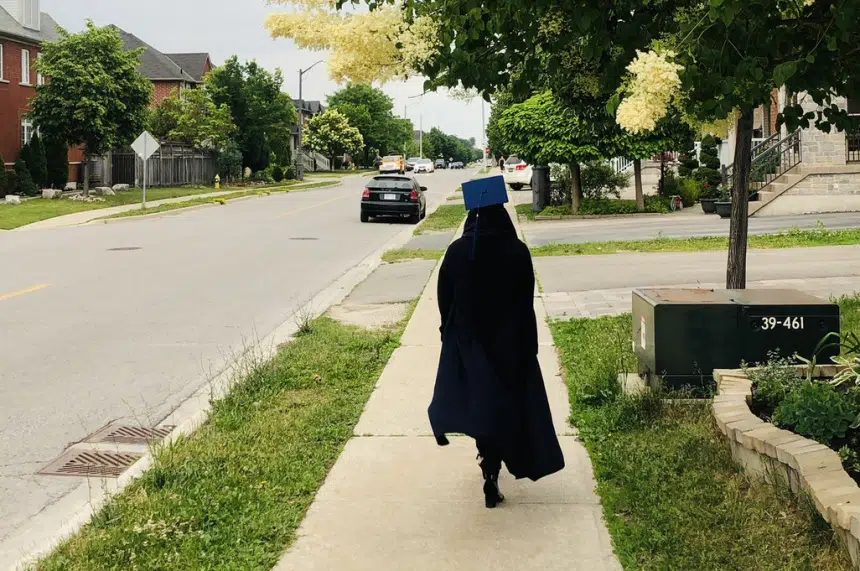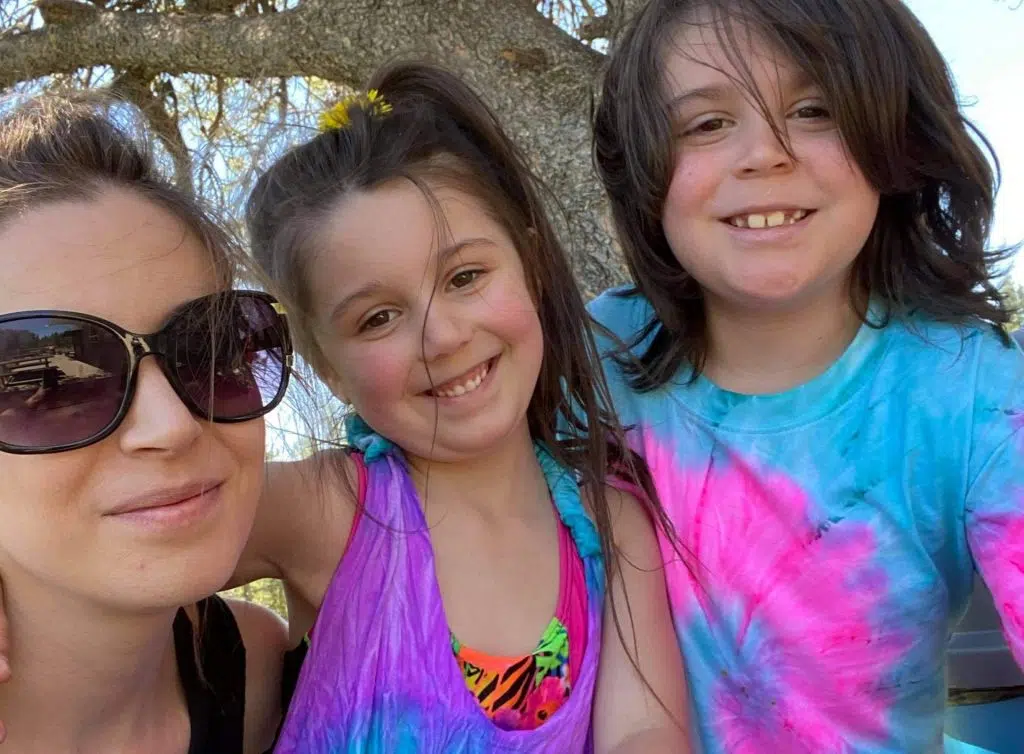Big, topical issues like racism, multiculturalism and residential schools are extremely prevalent today — and one Swift Current teacher is making them accessible to her students.
The students are as young as those in Grade 1.
Meral Choudhry teaches grades 1 through 3 in a virtual classroom with the Chinook Cyber School as part of the Chinook School Division. It’s only her second class as a teacher, but Choudhry is clear on her purpose — to help her students learn “love for all, hatred for none.”
The phrase is the motto in Choudhry’s faith group, the Ahmadiyya Muslim Community. Choudhry said her lived experiences with racism and a love for children are what led her to pursue a career in education.
Choudhry identifies herself as a Muslim hijab-wearing woman and teacher. She speaks six languages — English, French, Urdu, Hindi, Punjabi and Arabic. The focus of her teaching, she explained, is to teach through an “anti-oppressive and anti-racist lens.”
Teaching love
Choudhry uses several child-friendly approaches to introduce topics like culture, faith and diversity into her classroom, starting with her own appearance.
She said she felt it was important to tell her students about her hijab on their first day of class. As she teaches in a school that is composed of kids from small-town Saskatchewan, she knows her appearance might be different from what her students are used to.
“I think it’s really important for me to speak about my identity (and) what I wear on my head,” she explained. “I talk about my identity as a Muslim, my faith, my culture, my languages and then I really open up the floor to my students and I want to know more about them.”
Choudhry said the conversation has produced some wonderful responses from students, who become comfortable with regularly asking her questions about her faith and culture and enjoy seeing her in different colourful hijabs throughout the school year.
The teacher has got some cute comments from her students, too. One student on the first day of class confused the word “hijab” for “hedgehog” while Choudhry introduced herself to the class.
Each morning, Choudhry makes time for a special song, where she and her students will greet each other in different languages, representing the backgrounds of the kids in her class. Cree, French, Arabic, Urdu, Mandarin and English are some of the languages Choudhry’s students will greet each other in.
Students also get to explore different cultures, including their own, through various art projects, writing assignments and other activities. Choudhry said she will often have classroom discussions about topics like skin colour and racism, and will use books to help teach concepts like diversity.
“I know this is a huge concept and … mostly all of the students, when I ask them, ‘Do you know what racism is?’ they have no idea,” Choudhry explained. “It’s a big topic, so for me to simplify that is really important for them to understand what that means.”
After reading a book entitled It’s Okay to be Different, Choudhry said her student’s responses “just melted my heart.
“They wrote it’s OK to be sad, to have an invisible friend, to wear glasses, to have no hair, to speak Mandarin and to have different skin colours,” she said.
“That really illustrated to me that although my students are so young, they really understand what it means — what diversity means, what it means to belong and be accepted.”
Choudhry’s class also explores different cultural celebrations and holidays like Diwali and Chinese New Year.
“They loved it,” she said. “They were so fascinated because I would show them different cultural clothing, cultural food and videos … (and ask) ‘Can I celebrate this holiday as well?’ ”
Learning in action
Kelly Genert’s son, Stirling Broder, was in Choudhry’s Grade 1 class last year. She said she initially was surprised to hear her son was learning about such major topics at school.
“At first, I was a little taken aback by some of the social issues she was covering but looking back now, I think it was amazing to tackle those,” she reflected.
“As adults, we tend to find these issues hard to have conversations around but the younger that we start these conversations, the easier they will be as (our kids) get older.”
Genert is also a Woman and Gender Studies major at the University of Regina.
“I think … trying to get across to my son that when he moves through a room, it’s a lot different than when other people move through a room; we don’t all move through a room with the same mobility,” Genert explained.
“It was important for me to understand and to grasp to him that as he gets older — especially as he gets older — that he is going to carry a lot of privilege with him and that he needs to recognize that so that he can help other people, so that he can be a better person.”
Calling Choudhry’s teaching “absolutely amazing,” Genert said while it wasn’t expected, she found the lessons her son learned last year to be extremely valuable.
“Sometimes you look at your children like they’re younger than they are,” Genert said. “It’s really funny having a conversation with a seven-year-old about privilege. They tend to come up with pretty funny responses trying to wrap their little brains around it.
“The way that Meral approached it and talked to the kids about it made it seem so much easier. So for Stirling and I talking about privilege and racism, seeing as he’s a little white boy, I thought it was really important that we talk about those things.”
Genert said the topics are ones her son is still grasping, but having had the conversation started in such a safe environment helped them resonate with her son.
One such topic that Broder, who is seven, remembers well is residential schools. Genert said her son still becomes emotional when talking about the topic. Broder also learned about different cultures and skin colours.
“I remember him asking me what was appropriate to call people of other skin types and colours … He asked me if it was OK if we can say, ‘Well, I’m vanilla and they’re chocolate,’ ” Genert said with a laugh.
Acceptance for diverse teaching
Choudhry has not received any negative feedback or responses to her unique curriculum and said she has felt “very supported” by her school and school division, as well as parents and students.
This is especially encouraging to the new teacher, who said she saw and experienced many difficulties while growing up in the Canadian education system as an immigrant.
One parent expressed gratitude to Choudhry for incorporating Cree into her classroom, allowing her child to share their culture with the class and learn more about it.
The “beautiful, pure, big” hearts of her students make her excited about the responsibility she feels she has to teach and nurture them as future changemakers.
Choudhry just recently began her Master of Education in Social Justice Education at the University of Toronto’s Ontario Institute of Studies in Education.
“It’s so important to touch upon these topics like racism and acceptance and belonging so our young generation is well-prepared to become those citizens when they grow up that are loving and accepting,” she explained.
“That’s just really important to me.”








